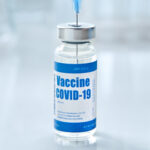EULAR 2023 (MILAN)—Rheumatoid arthritis (RA) is a disease that rheumatologists know well, but each year brings advances in diagnosis and management. At EULAR 2023, the session titled What Is New in Rheumatoid Arthritis? provided insights into the cutting edge of research and technology with respect to this rheumatic disease.

Dr. Aletaha
Daniel Aletaha, MD, MS, MBA, professor and head of the Division of Rheumatology, Medical University of Vienna, discussed the potential for preventing RA. According to EULAR, patients at risk of developing RA include those with joint symptoms of recent onset (less than one year in duration), metacarpophalangeal (MCP) joint involvement, morning stiffness lasting more than 60 minutes and experiencing the most severe symptoms in the mornings, and those with a first-degree relative who has RA. Physical exam features for those at risk of developing RA include difficulty making a fist and a positive squeeze test of MCP joints.
Pre-RA
Research into the prevention of RA takes an at-risk population and randomizes patients to either an intervention or placebo group, then follows participants for a period of time without treatment to observe if fulminant RA develops.
Dr. Aletaha discussed several studies of interventions in pre-RA, including SAVE, STIVEA, PROMPT, PRAIRI, TREAT EARLIER and STOP-RA.1-6 The majority of these studies have not shown any significant difference in intervention (e.g., glucocorticoids, hydroxychloroquine, methotrexate and rituximab) vs. placebo arms in preventing the development of RA.
One notable exception is the ARIAA study, an international, randomized, double-blind, placebo-controlled multi-center study of patients who are anti-citrullinated protein antibody (ACPA) positive and show signs of inflammation on magnetic resonance imaging (MRI).7 In this study, 100 patients were randomized to receive either 125 mg of subcutaneous abatacept weekly for six months or placebo, and were then observed for 12 months without treatment. The primary study end point was improvement in inflammation on MRI after six months. Secondary end points were progression to RA at six months and 18 months.
Improvement in inflammation on MRI was seen in 61% of patients in the abatacept group compared with 31% in the placebo group (P=0.0043). In addition, fewer patients in the abata- cept group progressed to RA after six months than in the placebo group (8.2% vs. 34.7%, P=0.0025). This held true at 18 months as well (35% vs. 57%, P=0.0421).
This study and others indicate the time point in the pre-RA window when an intervention is introduced, as well as which medication is being used as the intervention, may make a significant difference in the ability to prevent disease development.

